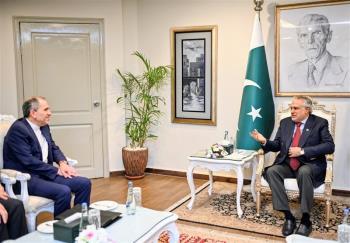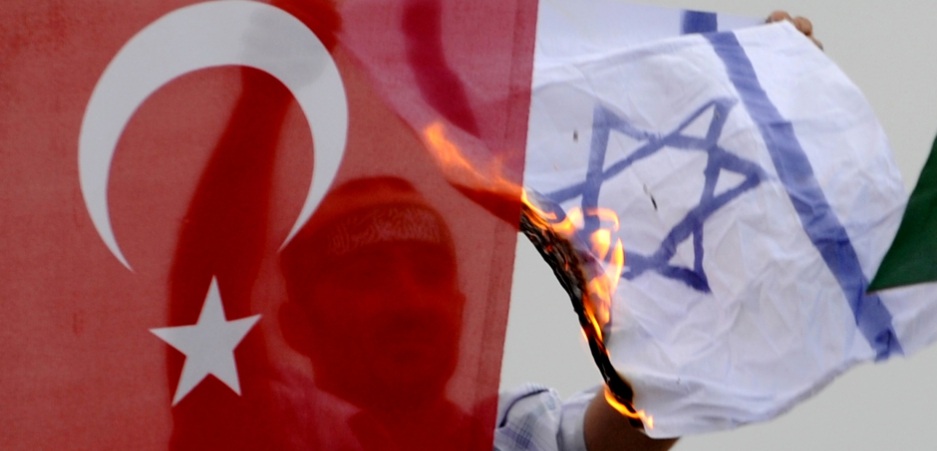Alwaght- The recently approved “Jewish nation-state law” still keeps being troublesome to the Israeli leaders as the apartheid policy is widely criticized domestically and internationally. The law, passed on July 19, deeply violates the rights of the non-Jews in the occupied Palestinian territories.
The so-called Jewish nation-state law marred hopes of some Palestinian factions, represented by the Palestinian Authority, and also some Arab states who have been seeking peace in negotiations with Tel Aviv, as the law officially puts an end to the two-state solution which eyes a Palestinian state beside an Israeli one.
The repercussions of the law in advance set off the alarm bells to the Muslim world, which is showing strong rejection to the Israeli Knesset’s move. Meanwhile, Turkey, a Muslim country with good relations with the Israeli regime over the past decades, came vehemently against the bill. Ankara leaders condemned the motion since the beginning, but President Erdogan struck a strong tone against the move branding Israeli regime as "the most Zionist, fascist and racist state in the world", and called on the international community to mobilize against Tel Aviv.
“There is no difference between Hitler’s Aryan race obsession and Israel’s mentality. Hitler’s spirit has re-emerged among administrators in Israel,” he went on, adding the Israelis had shown themselves to be a "terror state" by attacking Palestinians with tanks and artillery, continuing that the move would "drown the region and world in blood and suffering".
Erdogan’s fiery remarks drew a reaction from the Israeli Prime Benjamin Netanyahu who accused the Turkish leader of “massacring” the Syrians and Kurds and detaining thousands of his own people. He said that Erdogan’s words to condemn the Israeli law best defined his own actions.
Some believe that the Turkish-Israeli relations are strategic and tensions are simply tactical to serve own interests. But the fact is that their disputes set to rise especially after Trump administration relocated embassy to al-Quds (Jerusalem) on May 14, and there are signs they are fast deepening.
Deep Tel Aviv-Ankara gap goes beyond the personal rift
The recent verbal clashes between the two leaders give a sense that the fight is simply personal and is understandably definable under the conflicting Erdogan’s Islamism and Netanyahu’s hardline policy. This leads to the simplistic conclusion that once the two leaders change, the Turkish-Israeli tensions will wind down. But this is not true. The rifts between the two are strategic and go beyond the personal problems. Three reasons support this claim:
1- Tel Aviv strategy revolves around weakening West Asian powers
The first reason to believe that the Israeli-Turkish disputes are real and deep is provided by increasingly surfacing Israeli plans to undermine the strength of the major regional actors. Tel Aviv backs the independence of Iraq’s Kurdistan region. It also supports Ankara’s archenemy the Kurdistan Workers’ Party (PKK) group militarily and logistically. The militant group has been fighting the Turkish military for over three decades. The Israelis also covertly help separatist moves inside Turkey. All these measures push Ankara to the conclusion that Tel Aviv is an enemy to its interests, destroying the possibility of alliance and cooperation between the two. This view is now adopted by political factions inside Turkey.
2- Entrenched identity gap
The Islamic identity of Turkey plays a role in fueling the Israeli-Turkish escalation. The fact is that a major drive for the Turkish voters to choose the AKP to rule them is its Islamic tendencies. For decades before 2002, the year AKP assumed the power following a landslide win in the parliamentary election, the Israeli regime established a warm relationship with the seculars and military rulers of Turkey. But after AKP victory, the face of Turkey changed. Since then, Turkey returned to its Islamic roots by adopting an unavoidably different pro-Islamic policy using the democratic process. So, under any circumstances, even if the ruling party loses, the entrenched identity tensions remain stable, if not soaring.
3- Tel Aviv lobbying against Ankara
There is a supporting point to the idea that Ankara-Tel Aviv tensions are deep-rooted and not simply tactical. Take, for example, the Israeli lobbying efforts worldwide, particularly in the US where Tel Aviv has friendly pressure groups, to put strains on the Turkish leadership. Over the past years, the Israelis have used a range of ways to target the Turkish interests globally. In the recent months, the Knesset debated recognizing the Armenian genocide. Armenia accuses the Turkish Ottoman Empire of massacring the Armenian minority under its rule in early 20th century. The very latest anti-Turkish motion has recently started, with the Israeli regime pressing the US Congress, where it has listening ears, to prevent the delivery of the cutting-edge F-35 fighter jets to Ankara. All these lobbying attempts press the circumstances to a stalemate, making escalation between the two possible any time.



























